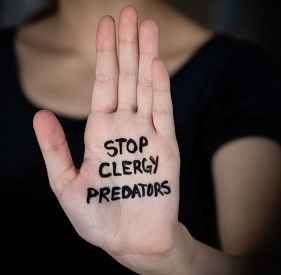Anyone who was abused by clergy in California has just a few months remaining to file a claim. The window to file a clergy abuse claim in the golden state closes on Dec. 31, 2022. Once that window closes, it may be difficult or impossible to file a case.
The Child Victim’s Act (AB218) expanded the filing limitations that previously applied to clergy abuse survivors. One of that Act’s measures is a three-year “look back” window. That window allows plaintiffs to file civil suits for childhood sex abuse no matter how long ago the abuse occurred.
Calif. law previously allowed people to file a claim only up to age 26. AB218 raises that age to 40, which is the new cutoff age when the window closes at the end of December.
Clergy Abuse Plaintiffs
Those who feel they have a claim might begin by compiling a history to begin assessing the legal terrain themselves.
- What was the nature of the abuse suffered?
- At what age or in what time period did the abuse occur?
- Were you abused by an employee, agent, religious order member, or priest of the Roman Catholic Church.
- What is the full name of the abuser(s), as best you can recall?
- What was the name of the church, school, or other institution(s)/location(s) of the sex abuse?
Attorneys like to obtain as much information as possible to assist in establishing a claim, though they can also investigate and try to build a case on a survivor’s limited recall.
Clergy Abuse Lawyers understand information can be difficult to gather, as many clergy abuse incidents may have happened long ago, even decades, in the survivor’s past. Experienced attorneys (and their staffs) can help them recall important details and/or dates or time-period windows they may have blocked from their memories, in their efforts to survive and live with the facts of their abuse.
Delayed Reporting in Clergy Abuse Lawsuits
Many states, like California, have come to realize over the years that delayed reporting in clergy sex abuse cases is more the rule than the exception. Most people who file clergy abuse suits do so only after several years have passed since they were abused. Healthy human minds naturally gravitate toward remembering the good or pleasant episodes in life. We naturally turn from the dark or depraved or emotionally unsettling. We don’t want to recall those events or see them repeated. This is a healthy survival skill hard-wired into our psyche, but most human beings also carry a sense of justice which seeks to affirm the golden rule – that what goes around comes around. We want to believe in justice. We want to believe that there is poetic, as well as real, justice that must be tallied and held to account in life’s ledger. Perps should be made to pay, most of us think, because there’s a universal law that says so. And so we all want to we perps brought to justice. We want adults to be held accountable for their actions, especially as those actions include the sexual abuse of minors.
Survivors of clergy abuse also carry an extra burden rarely discussed. Do they have an obligation to “out” an abusive perp so that other underage people might be saved from similar crimes against humanity?
The complex issues facing survivors may not end with a lawsuit against clergy abuse perps and their institutional enablers, but such suits can help victim survivors seek some means of righting the wrongs visited upon them, and help stop those wrongs from being visited upon others.
RELATED
- Calif. Clergy Abuse Deadline Looms
- Southern Ca. Priest Sex Abuse Cases Filed: Spring 2022

by Matthews & Associates




